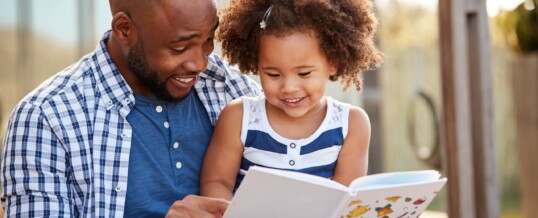
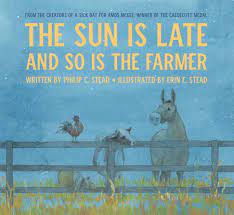
The Sun Is Late and So Is the Farmer, by Philip Stead
A mule, a milk cow and a miniature horse are waiting for the sun to come up. They think the sun is late. So they ask some friends for help. Children also have their own ideas about things. The conclusions that they come to may not always be correct. That’s why it is always good to notice what the children are noticing.
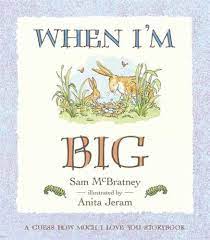
When I’m Big, by Sam McBratney
Little Nutbrown Hare was on a walk with Big Nutbrown Hare when they noticed a tadpole. Big Nutbrown Hare said the tadpole would grow up to be a frog. Little Nutbrown Hare worried about changes. Young children also worry about changes and growing up. It’s hard to grow up. It helps when they have a grown-up who can answer their questions.
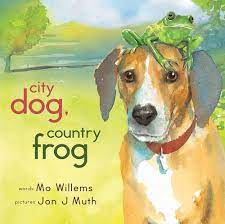
City Dog, Country Frog, by Mo Willems
In the spring, City Dog ran in the country and met Country Frog. Country Frog taught City Dog country games. In the summer and fall City Dog taught Country Frog city games. The next spring, when City Dog couldn’t find his friend frog, he made a new friend: Chipmunk. Sometimes, children need to be reminded that when they go to new places or new schools, they can make new friends. And they can always remember the fun they had with their other friends.
How to pick a great children’s book
The selection of books is as important as the selection of toys. Young children have incomplete information for understanding the world around them, which results in what we often refer to as “magical thinking”: explanations for things that don’t make sense to adults. Magical thinking can make it difficult to know what’s going on in a child’s mind, and may lead to unexpected reactions of fear or stress.
Here are some thoughts about selecting appropriate books:
- Look for pictures that may be scary to a young child. Is there a fire? Do the animals have long sharp teeth? Are there depictions of things that you know are troubling to your child specifically?
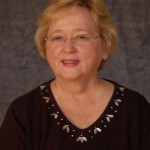
Acierno
- Is the vocabulary suitable? Are the words scary, like yelping, snarling and hissing sounds. Are there references to violence or antisocial behavior – fighting or throwing things?
- Is it developmentally appropriate? Books for young children should be uncluttered and simple with a clear presentation of the important concepts. The first words that children learn are nouns – the objects of everyday life.
For more insights about selecting books and reading with young children, look at our original list of 100 great children’s books.
Book links go to Amazon and generate a small donation to Hanna Perkins Center when used to make a purchase.
Other blog posts that might be of interest:
DEC
2023


About the Author:
Early Childhood Educator Noreen Acierno teaches preschool at Hanna Perkins School, where she has worked since 1999. She is passionate about children's books.